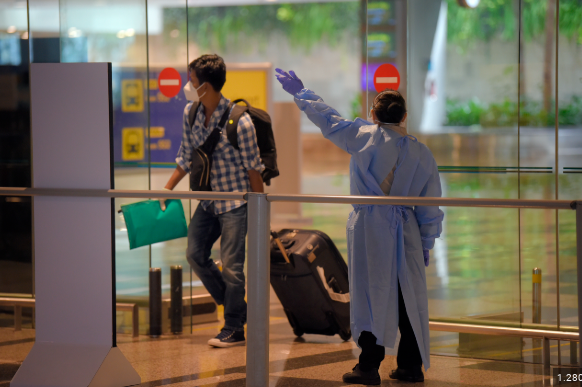Experts highlight challenges and legal implications
Singapore’s Ministry of Health (MOH) has introduced a new pre-departure Covid-19 test requirement for Singapore citizens and permanent residents (PRs) returning from high-risk countries. The rule, which took effect at 11.59 pm on May 29, mandates a negative polymerase chain reaction (PCR) test taken within 72 hours before departure.
Purpose of the New Rule
Health experts believe the move will:
Protect front-line workers at Changi Airport
Ease the strain on Singapore’s healthcare system amid rising community cases
Minimize the risk of imported infections after the emergence of the airport-linked cluster
Implementation Challenges
Despite its benefits, experts highlight several difficulties in enforcing the rule:
Limited access to testing in some countries, making compliance challenging
High costs and long waiting times for PCR tests in certain regions
Potential for fraudulent test results if proper accreditation is not ensured
Legal questions regarding constitutional rights for Singapore citizens
Key Details of the Requirement
Applies to Singaporeans and PRs returning from high-risk areas
Exemptions:
Travelers from Australia, Brunei, China, Hong Kong, Macau, and New Zealand (must have stayed there for at least 21 days)
Children aged six and below
Enforcement at checkpoints:
Air and sea travelers must present documentary proof of test results
Land border entry: Only PRs need to provide a negative test result, and those without it may be denied entry
Tests must be conducted by accredited health facilities
Traveler Reactions
Singaporeans abroad have expressed mixed reactions:
Fin Chua, 30, a business owner in Thailand, delayed his return due to the difficulty of obtaining a PCR test in Bangkok
Cheryl Wong, 30, based in New York, finds the rule manageable due to easy access to free testing in the US
Samuel Phua, 23, studying in Finland, worries about false positives, especially during allergy season
Legal and Ethical Considerations
The constitutional validity of the rule has been questioned:
Singapore’s Constitution (Article 13[1]) states that no citizen shall be banished or excluded from the country
Some legal experts argue that the new requirement could be seen as an exclusionary measure
Others believe it is a necessary public health precaution and does not violate constitutional rights
Experts’ Perspectives
Dr. Ling Li Min (Rophi Clinic):
The measure will reduce exposure risk at airports
PCR tests are not perfect but can identify highly infectious individuals
Prof. Paul Tambyah (NUS):
Supports universal testing, even for travelers from low-risk areas
Believes the rule reduces risk for airport staff
Prof. Teo Yik Ying (NUS):
Warns of logistical difficulties in some countries
Concerned about fake or low-quality test certificates
Prof. Eugene Tan (SMU Law):
Believes the rule does not violate constitutional rights
The requirement applies to airlines and ferry operators, not direct government exclusion
Final Thoughts
While the rule presents challenges, it serves as a strong deterrent against unnecessary travel. Experts emphasize that Singaporeans and PRs must take personal responsibility when choosing to travel during a global pandemic.








